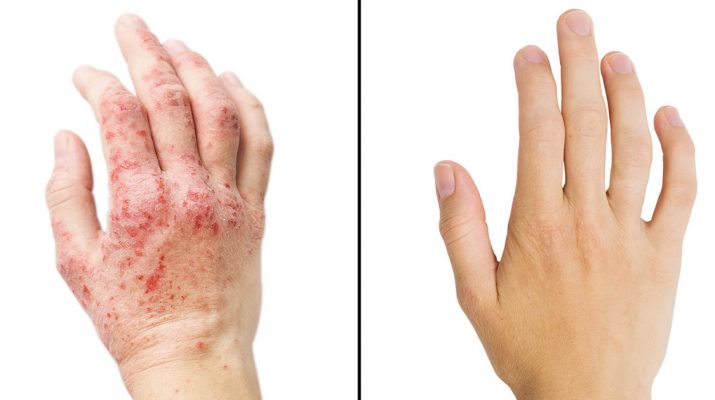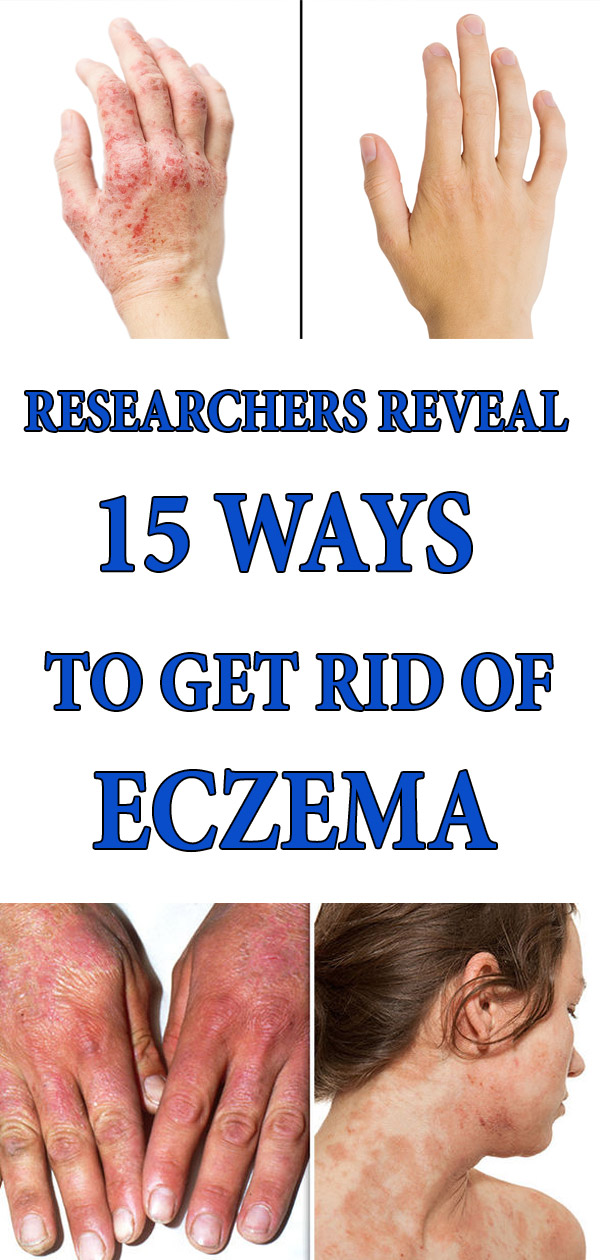If you’ve been diagnosed with eczema (dermatitis), you know how challenging it can be to find relief from the redness, dryness, and itchiness that seems to pervade your skin. In saying that, you also know that some over-the-counter treatments can worsen your condition as opposed to making it better.
But what is dermatitis, exactly? Well, it is a skin condition characterized by patches of skin that becomes rough and inflamed. Although in some cases the condition is linked to irritation, there is often no external cause, meaning it could come down to genetics. In this article, we will detail a few eczema home remedies that may relieve your symptoms and also provide you with healthy, irritation-free skin.
As a word of caution, if you’ve been prescribed medication to treat your dermatitis, you’re encouraged to speak with your physician before using any of the treatments outlined in this article as they may be contraindicated and could worsen your condition.
15 Proven Ways To Get Rid Of Eczema
1. Avoiding Stress
It’s no surprise that stress can adversely affect one’s health, eczema is no exception. In fact, studies have shown that there is a strong correlation between stress and this skin condition. As such, finding ways to cope with stress could relieve eczema without having to take medication or seeking other forms of treatment. Some of the more popular ways of de-stressing include meditation, deep breathing, exercise, and CBT (cognitive behavioral therapy).
2. Calendula Cream
If you’re not familiar with calendula cream, it is one of the more popular topical eczema treatments. Characterized an herbal remedy, calendula cream works by improving blood flow to areas of the skin that have been injured or inflamed; best of all, this all-natural cream is available over-the-counter at most pharmacies and big-box stores.
3. Sunflower Oil
Extracted from sunflower seeds, sunflower oil is another great all-natural eczema treatment. It works as a shield, protecting the outer layer of the skin while also keeping it moisturized. This barrier of protection makes the skin less susceptible to itchiness, inflammation, and other symptoms. So how is it applied, you ask? Well, as you can imagine, it is applied topically. However, for best results, it should be applied undiluted and immediately following a bath or shower.
4. Coconut Oil
Although hailed as one of the best natural moisturizers on the market, coconut oil is also an effective dermatitis treatment. In fact, according to the National Eczema Association, coconut oil contains antibacterial agents that protect the skin from bacteria. This is important since dermatitis can cause infectious bacteria to seep into the skin, adding another layer of complexity to an already bad skin condition. As far as the application process is concerned, liberally apply cold-pressed coconut oil to the areas of the skin affected by dermatitis.
5. Witch Hazel
Despite its rather peculiar name, witch hazel is one of many effective eczema home remedies; it is an astringent derived from the witch hazel shrub, namely the bark and leaves. This product has been around for centuries and does an exceedingly good job at relieving itchy, inflamed skin. It also helps to dry-up bacteria that seeps from cracked or blistered skin.
6. Oatmeal Baths
Oatmeal is delicious and nutritious; however, it can also be an excellent ally in your fight against dermatitis, especially colloidal oatmeal. Made from finely-ground oats, colloidal oatmeal helps soothe inflamed skin and relieves itching. It’s also worth noting that it is available as a powder; for best results, add colloidal oatmeal to your bath water and soak in it for about 15 minutes to benefit from its healing properties.
7. Acupuncture
While acupuncture is not a home remedy per se, it has been found to be a highly effective dermatitis treatment. Therefore, it made it onto this list as an honorary mention. More research will still need to be done to confirm the efficacy of acupuncture as it relates to dermatitis, but as it stands, it has been shown to relieve itchiness, redness, and inflammation by altering the body’s flow of energy. To help put this into context, it may help to understand what acupuncture entails; it is an alternative medicine that involves inserting very thin needles into varying areas of the body to balance energy, promote relaxation and, most importantly, stimulate healing.
8. Allergies
Similar to stress, allergies can indirectly contribute to dermatitis; this is especially true for those who have food allergies. In fact, studies have shown that removing certain food items like eggs, wheat, milk, peanuts, and soy products can go a long way toward relieving dermatitis symptoms. In saying that, however, this may only apply to mild cases as severe cases may require further treatment.
9. Dietary Changes And Improved Skin
Having already touched on how food allergies can lead to dermatitis, let’s take a moment to discuss how making a few dietary changes that can help you avoid developing the condition altogether.
Fatty Fish
If you didn’t already know, fatty fish like salmon, for example, contains omega-3 acids that act as an anti-inflammatory. This means by adding fish to your diet or taking fish oil supplements you’re in a better position to ward off dermatitis before it has had to ever develop. As far as the recommended daily intake is concerned, you should aim to consume 250 mg of this unsaturated fatty acid daily.
Quercetin
Along with omega-3 fatty acids, foods rich in quercetin can help you avoid dermatitis. If you’re not familiar with quercetin, it is a plant-based flavonoid with powerful antioxidants. Some of the foods that contain quercetin include fresh fruits like apples and berries as well as spinach, broccoli, and kale, for example.
Probiotics
Although commonly associated with digestive health, probiotics can also protect you against dermatitis by promoting a strong immune system. Some of the more popular foods that contain probiotics include yogurt, sourdough bread, soft cheeses, fermented pickles, and sauerkraut, for example.
10. Phototherapy
Although the majority of this article has focused on eczema home remedies, some of these skin conditions may require medical intervention. As such, phototherapy can be a useful treatment protocol to help remediate dermatitis. So what is it, exactly? Well, it involves the use of medical lamps that emit ultraviolet light directly on the areas of the skin affected by dermatitis. This procedure promotes the production of vitamin D and engages the body’s immune system, which, in turn, relieves dermatitis symptoms.
11.Biologics
In some cases, prescription medication may be the only option for treating severe dermatitis; as such, there is a particular class of medication that can target specific areas of the immune system as a way of relieving dermatitis, biologics. Prescribed by a doctor or dermatologist, biologics are administered intravenously. It’s worth noting that they contain engineered proteins, which have been taken from human genes that make exceedingly good at targeting the areas of the immune system that triggers dermatitis.
12. Systemic Medications For Dermatitis
While topical solutions and light therapy may work for some people, they offer little to no effect for others. In saying that, systemic drugs may be a viable solution for treating severe dermatitis. This class of medication is designed to treat the entire body as opposed to just the skin, meaning to resolve the underlying condition that may be contributing to your dermatitis. It’s worth noting that these particular medications are prescribed as a last resort for patients who have not responded to other treatment protocols.
13. Moisturizing
Getting back to eczema home remedies, the best way to combat itch, red, and inflamed skin is by implanting a sound moisturizing routine. This means being cognizant of how certain products will affect your skin and when to use them. To that point, those who struggle with dermatitis have drier skin than those who don’t, which is the result of an imbalance in the protective layer of the skin. As such, they have to use products specifically aimed at those with dermatitis, and they have to moisturize far more frequently than most people.
14. Meditation
The mind and body are more connected than most people care to realize; in saying that, meditation can be another one of many effective eczema home remedies. The science behind meditation is that it promotes relaxation and reduces stress, which indirectly helps control breakouts related to dermatitis. In fact, in a study conducted by UK’s Mental Health Association, those who combined meditation with other treatment protocols observed significantly greater improvements in their dermatitis than those who didn’t engage in meditation.
15. Humidifiers
Along with the other treatments recommended in this article, a humidifier can also help alleviate dermatitis. Of course, this not all too surprising as dry indoor air can wreak havoc on sensitive skin. So if you don’t have one already, consider purchasing a humidifier for your home.


